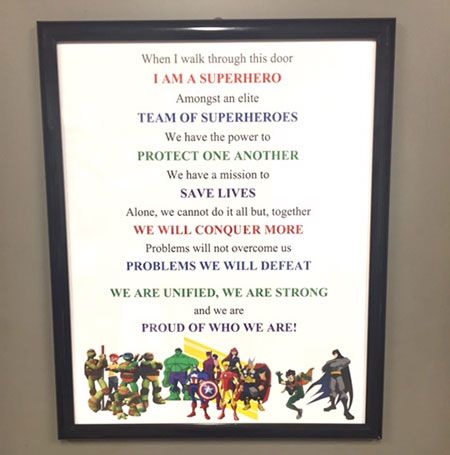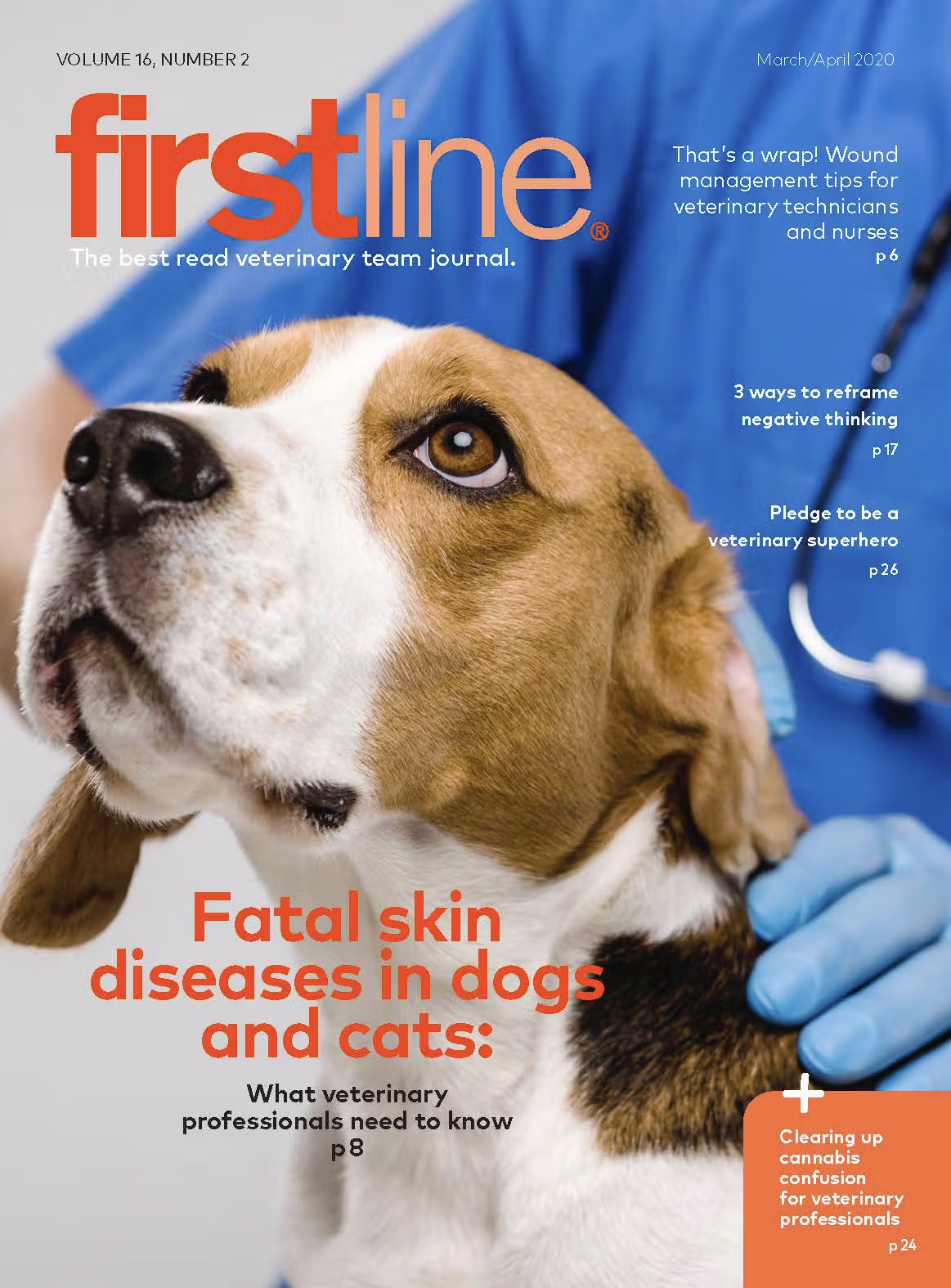Pledge to be a veterinary superhero
Even the loner Batman joined the Justice League for the good of all. Heres how this 2019 dvm360/VHMA Practice Manager of the Year finalist inspired her veterinary practice team to be all for one and one for all.
(MeganBetteridge / stock.adobe.com)

Super managers
Jessica Molina is one of 10 finalists for 2019 dvm360/VHMA Practice Manager of the Year. Learn more about the contest and read more stories from other entrants, finalists and winners here.
There is something the Avengers, the X-Men, the Justice League and the Teenage Mutant Ninja Turtles all have in common-they believe in the power of a team. Each team member has unique strengths and weaknesses, and their success is best accomplished by leveraging their individual skill sets. These superheroes are all highly desirable.
However, there's another type of superhero out there. This one tends to operate alone and with ego. This superhero I refer to as the “Luckily I” superhero.
“Luckily I” superheroes also aspire to do their best, and they execute activities with excellence. But these superheroes tend to work alone, because they set high and often unreasonable expectations on others-finding fault and highlighting others' weaknesses. They are often quick to point out, “Luckily, I fixed the problem,” or “Luckily, I was there to intervene.” Due to their lack of leadership skills, they set up peers for failure. Doctors often unintentionally cultivate this type of superhero by delegating tasks solely to those individuals they “know will get the job done and done right,” which unfortunately communicates a lack of confidence in other team members.
I saw this in my own team, so I knew I needed to make critical changes. My clinic culture and patient care ultimately depended on it.
How I lifted up all my superheroes
My big changes involved communication and collaborative thinking in a big exercise I called Superhero Academy. I brought the team together to openly share feelings about the culture and then went around the room asking each person to describe their ideal workplace culture. We made note of these descriptions, as they played an instrumental role in developing our clinic's cultural vision.
I then shared with them the two types of identifiable superheroes (team superheroes and “Luckily I” superheroes), including their motives and actions. What an eye-opening, reflective session this was.
I asked the team to think about a situation: Your teammate is high on a ledge. What are some possible outcomes? A few of the responses included: They could fall off the ledge, be talked or guided away from the ledge, recognize their unsafe position, or you could catch them if they fell.
This plaque hangs in our veterinary hospital. My team committed to supporting each other as a team of superheroes, not just individual superstars. (Photo courtesy of author)

Then they were asked to think not only about what the two types of superheroes would do, but what might they say. They replied that a team superhero would either guide the person away from the ledge or catch them if they fell, communicating that they cared. They thought the “Luckily I” superhero would let a teammate fall, perhaps remarking to everyone else, “At least you still have me!”
We closed the conversation outlining the characteristics of a team superhero: looking out for those around you, preserving safety and integrity, preventing or cushioning falls and believing in the power of a team. We all pledged to be superheroes who work together for the greater good-providing support to others so they can reach their potential, capitalizing on their own strengths and preserving the integrity of the team.
You could see an immediate difference in the staff members after the meeting. They started to work together more. Over time, my “Luckily I” superheroes transformed. Instead of using the mistakes and failures of others as stairways to their own success, they began to find opportunities to demonstrate their leadership skills, guiding teammates away from the ledges of failure. Now thoese are some real superhero powers!
“Luckily I” superheroes can be tremendous assets to a team. Their exceptional skill sets make them ideal candidates for leadership-if they can learn and practice emotional intelligence and self-awareness. Because of open communication and team commitment, I've certainly been rewarded with a team of individuals no longer afraid to be vulnerable in front of their peers who proactively help others overcome their obstacles. What I now have is more than just a better culture-I have a true superhero family.
Jessica Molina, PHR, CVPM, CCFP, is hospital administrator at Lee Veterinary in Atmore, Alabama, and a finalist for 2019 dvm360/VHMA Practice Manager of the Year.
